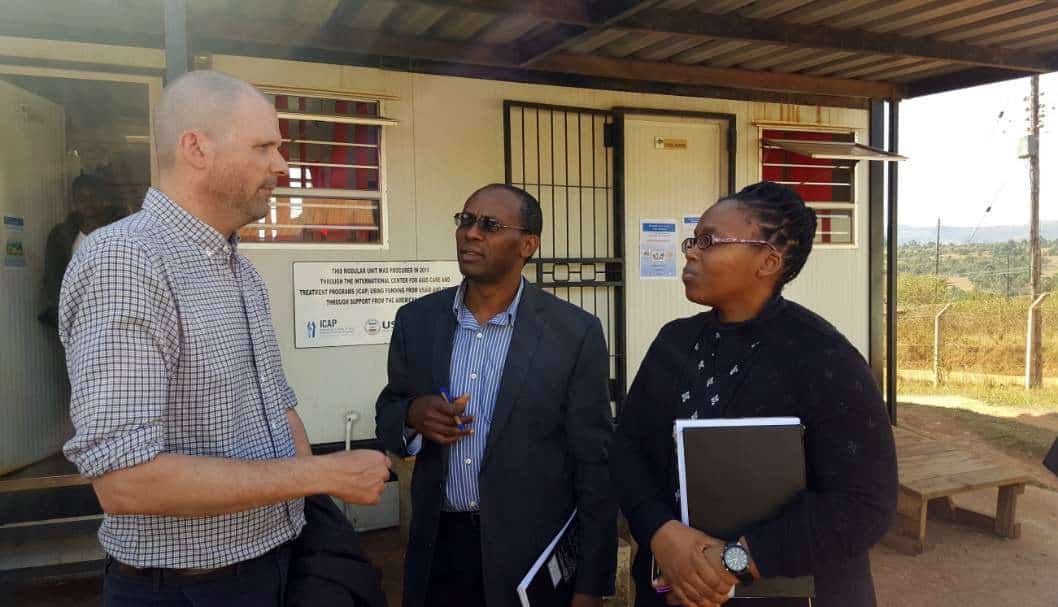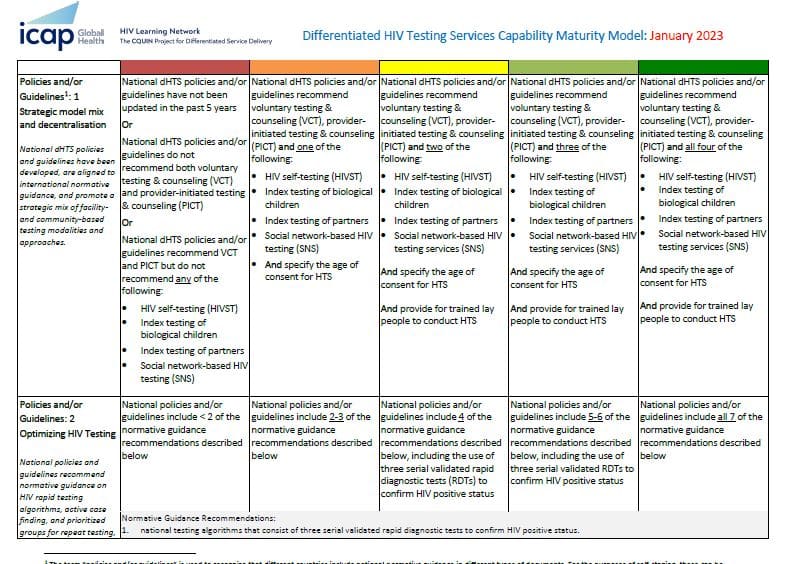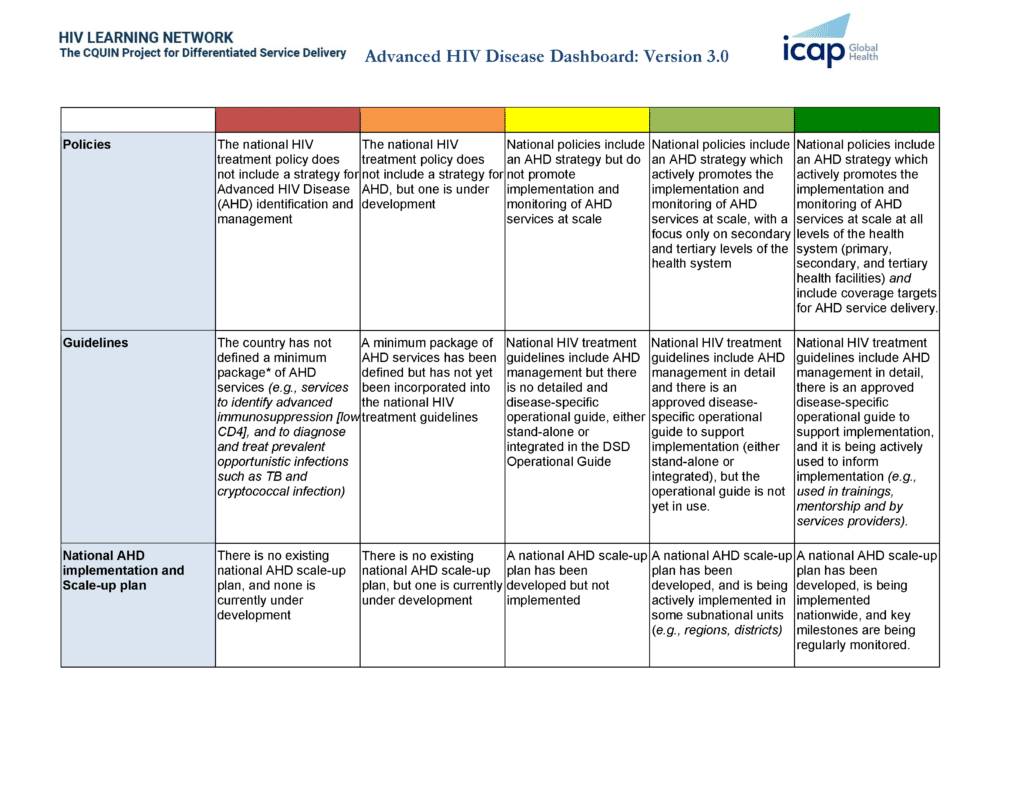In 2016, the Kingdom of Swaziland implemented an approach to differentiated ART service delivery: Community‐Centered Models of ART Service Delivery (CommART). Specific elements of the approach are described in guidelines and standard operating procedures published by the Swaziland National AIDS Program (SNAP). The approach includes five models for ART delivery:
- Mainstream ART
- Outreach (i.e., ART clinical services provided at locations outside of the main facility)
- Fast‐track ART
- Community ART groups
- Facility‐based ART clubs (may include clubs intended for specific groups of patients such as adolescents, pregnant, or breastfeeding women)
ICAP at Columbia University developed draft guidelines for monitoring and evaluation (M&E) of differentiated ART services delivery in May 2017. In light of these guidelines and the current implementation of CommART, SNAP requested an M&E consultation from ICAP within the context of CQUIN. The expected deliverables from this consultation included:
- A set of recommended CommART M&E indicators
- Suggested changes to data collection and management, in particular to the national electronic medical record system, the Client Management Information System (CMIS) , but also to paper records as needed
- A description of routine CommART reports that can be generated from the data to be collected in CMIS
The consultation process included meetings with key stakeholders to discuss issues related to M&E of CommART, and field visits to facilities implementing CommART models. Suggestions for development of the above deliverables are summarized in this report.





